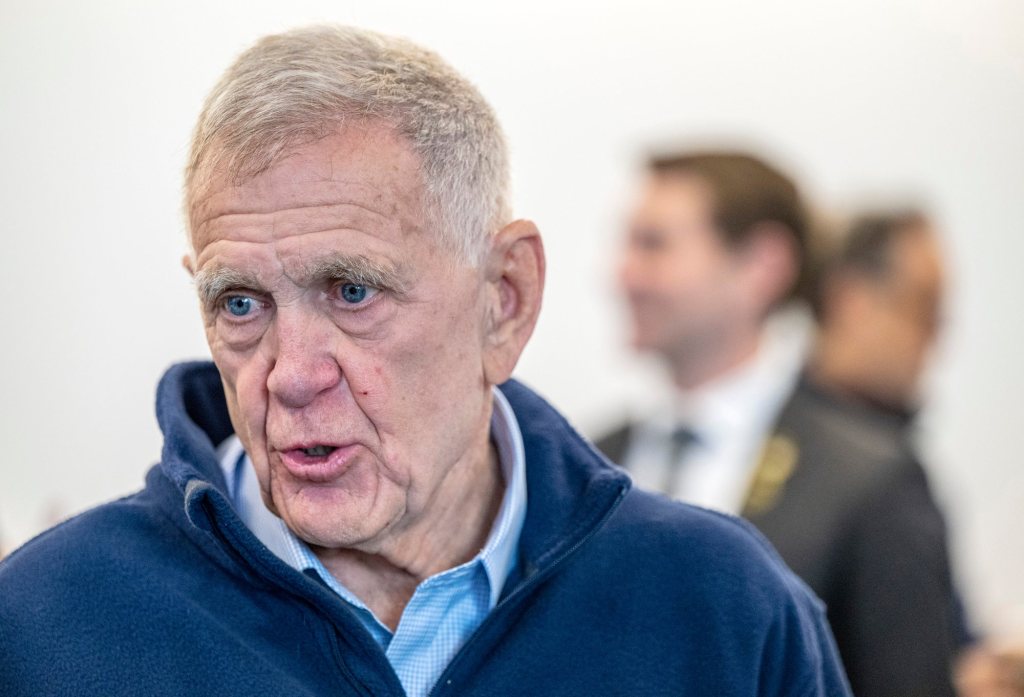A federal judge pressed the City of Los Angeles’ attorneys Wednesday over whether the city has slowed or obstructed efforts to verify required homelessness data, opening a high-stake evidentiary hearing that exposed sharp disputes over transparency, reporting and compliance–but did not yet result in contempt ruling.
U.S. District Judge David O. Carter convened the hearing to examine allegations that the city has stalled oversight efforts, withheld or failed to verify required data under its 2022 settlement with the LA Alliance for Human Rights, and resisted cooperation with court-appointed special master and monitor.
Throughout the day, attorneys for both sides delivered forceful arguments, and witnesses–including Mercedes Márquez, former chief of housing in the mayor’s office, and Paul Webster, executive director of LA Alliance for Human Rights—were questioned about data gaps, reporting lapses and the city’s broader approach to compliance.
With several additional witnesses unavailable for in-person testimony until December—and Carter indicating he is not inclined to accept virtual appearances—the hearing will continue on Dec. 2 at 7:30 am at the U.S. District Court in downtown Los Angeles, meaning any decision on contempt is still weeks away.
Contempt, in civil cases like this, means the judge finds the city has not followed court order. If that happens, the court can require stronger oversight, or order the city to pay fees. It does not automatically lead to dramatic punishments.
The city continued to argue it has made good-faith efforts to comply with the settlement and has substantially increased shelter capacity since the agreement was approved.
Theane Evangelis, an attorney representing the city, told the court Los Angeles has made “enormous strides” toward expanding shelter options and has faithfully reported its progress.
Evangelis pushed back on the Special Master’s claim that the city has delayed oversight, saying the city met the Nov. 6 response deadline that Special Master Michele Martinez had set. She also disputed suggestions that the city has withheld information from Daniel Garrie, the court-appointed monitor whose appointment was temporarily paused after the city appealed to Ninth Circuit.
The city also argued that the settlement language requiring the city to provide data “to the extent possible” left room for reasonable disagreement. Evangelis also urged the court “to turn down the heat” and “stop putting the city’s homeless policy on trial.”
Attorneys for the LA Alliance, on the other hand, argued the city has shown a pattern of delay, incomplete reporting and resistance to oversight since the settlement took effect. Elizabeth Mitchell, a lawyer representing the plaintiffs, pointed to recent filings from the Special Master and monitor that describe unverified shelter numbers, missing categories of data and unanswered questions about encampment reduction reporting.
“Three years into this settlement, the city still fights oversight harder than it fights homelessness,” Mitchell said.
Plaintiffs also highlighted inconsistencies in the city’s claims that it does not control the Los Angeles Homeless Service Authority, saying the city occupies half the seats on the LAHSA Commission and has significant influence over data flow.
“Numbers matter, because numbers equal people,” Mitchell said.
Webster testified that the city has often responded meaningfully only “at the eve of court hearings” or sanctions threats.
He also described a meeting in January 2024 with Mayor Karen Bass, staff and counsels on her team, in which the city proposed shifting away from the settlement’s council-district-based approach to a citywide strategy for removing people off the streets–a change Webster said would have given the mayor greater authority but weakened local accountability.
Webster told the court he has “no faith in the ability or the willingness of the city of Los Angeles to comply with the proposed milestones and deadlines.”
Márquez, who served as Mayor Bass’s chief of housing for 11 months before leaving the administration in 2023, was subpoenaed by the plaintiffs’ lawyer on Nov. 16, just a few days before the hearing.
Under questioning from the plaintiffs, Márquez said her primary responsibility was overseeing the mayor’s Inside Safe program and that she was not responsible for administering or monitoring the city’s settlement with the LA Alliance.
The long-running case started in March 2020 when the LA Alliance for Human Rights, a coalition of downtown business owners and residents, filed a lawsuit accusing the city and Los Angeles County of failing to adequately address homelessness.
Los Angeles settled in 2022, agreeing to create 12,915 shelter beds by June 2027. More than 3,800 still remain, according to court filings. Earlier this year, a court-ordered audit by Alvarez & Marsal found those figures could not be verified because of inconsistent record-keeping and outdated data systems.
In a 62-page ruling in the summer, Carter found the city had failed to comply with several key provisions of the settlement and ordered the appointment of a court monitor to track the city’s progress on a quarterly basis and help the court in overseeing compliance.
Carter appointed forensic data expert and attorney Daniel Garrie as monitor in October, but that appointment is currently paused after the city appealed and the Ninth Circuit issued a temporary administrative stay. The city had pushed for former Controller Ron Galperin instead of Garrie. Judge Carter rejected that, citing Galperin’s ties to the ity and lack of the technical data-audit expertise the court said was required.
